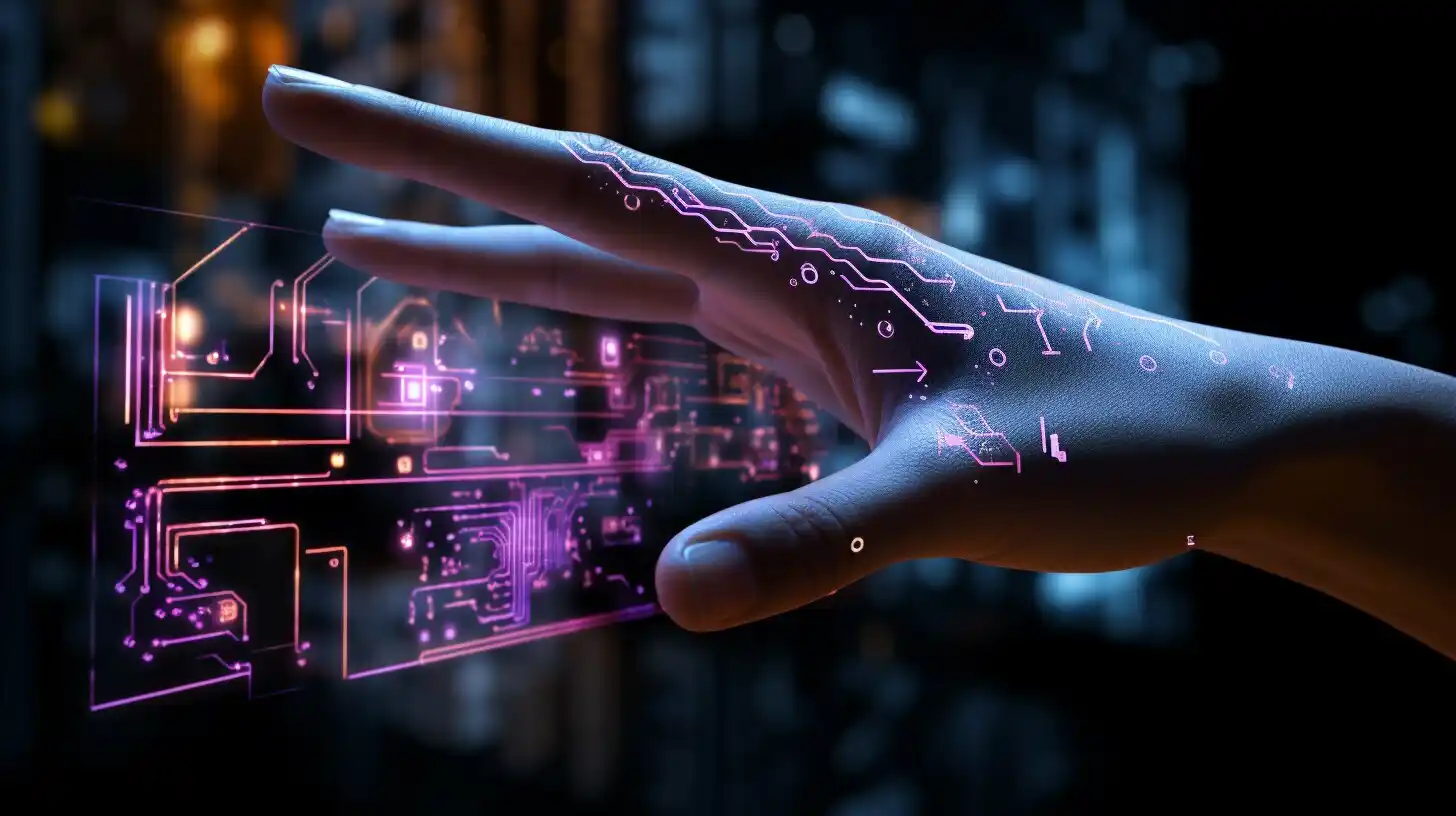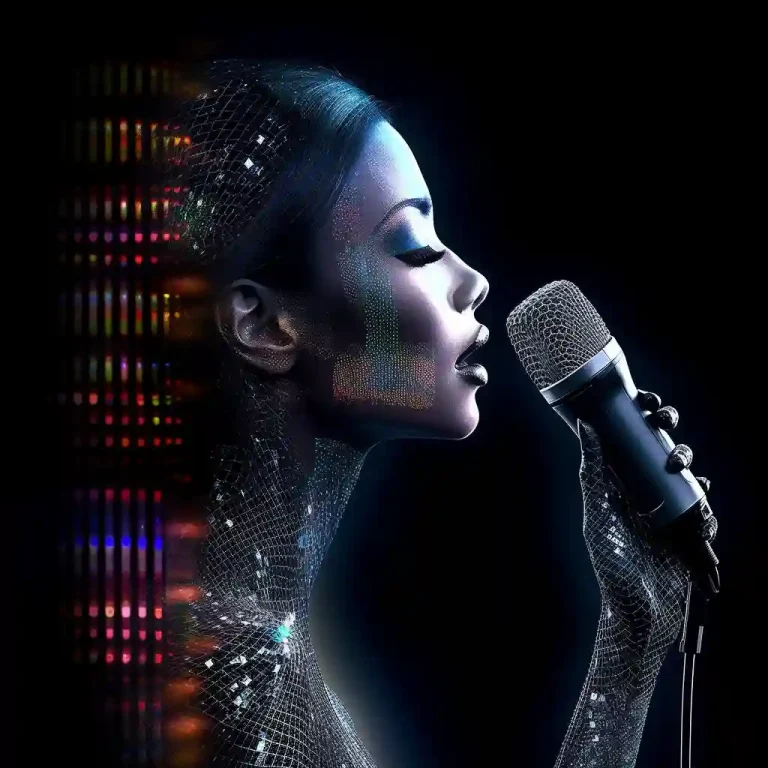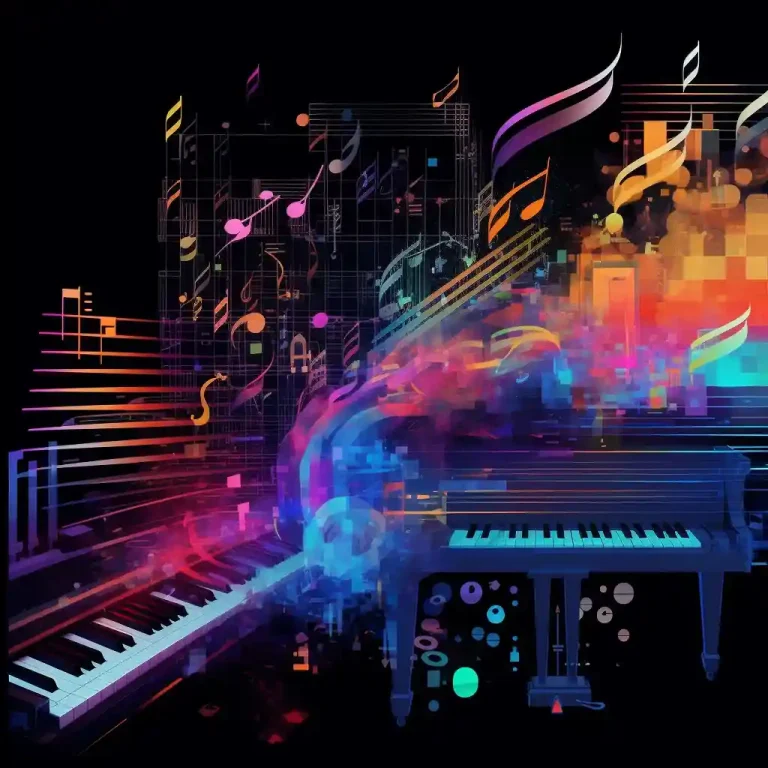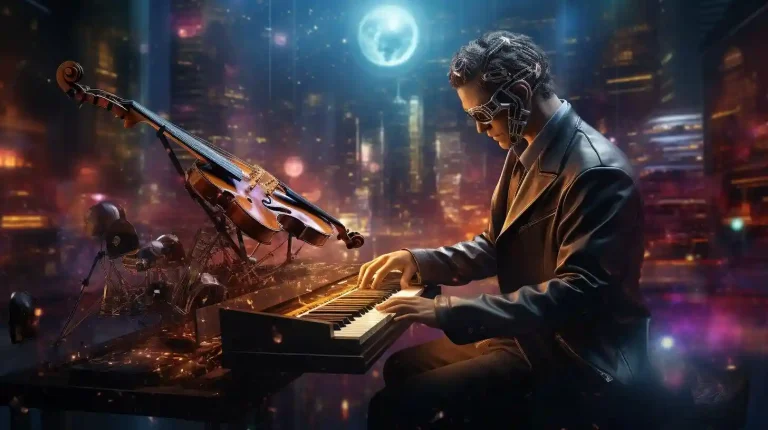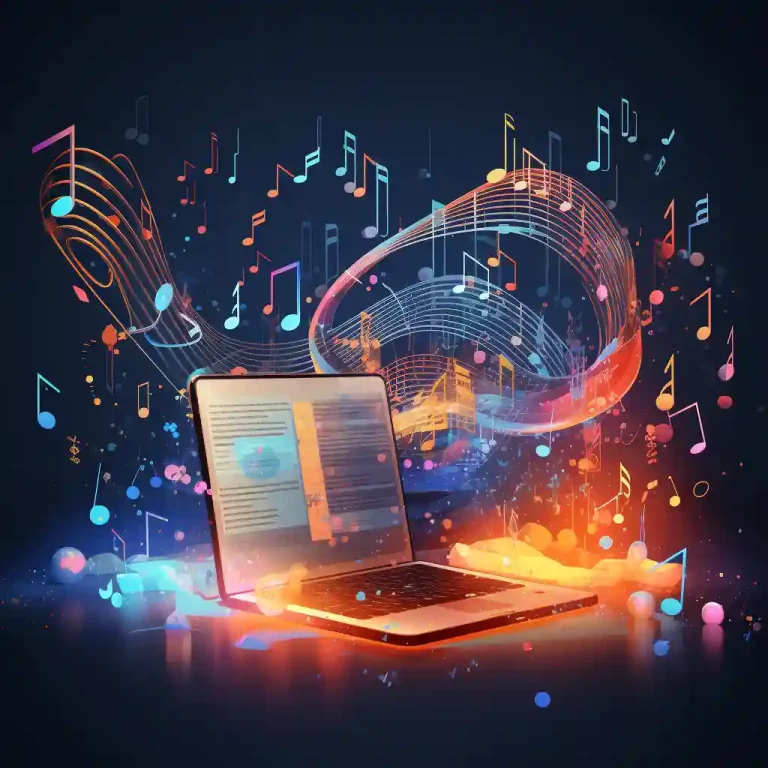Will AI Impact Music Industry Jobs? (Easy Explanation)
The music industry is constantly evolving, and now, artificial intelligence (AI) is making its mark. But will AI impact music industry jobs? As technology advances, it’s no surprise that musicians and other professionals might be feeling a bit uneasy about their career prospects.
AI is already being used to create and produce music, potentially affecting musicians’ job security. However, embracing AI might not be all doom and gloom; it could also open up new opportunities for those in the industry. As the music world adapts, let’s explore how AI might change things up.
Key Takeaways
- AI’s influence on music creation and production may impact job security
- Assessing the potential job impact leads to a balanced understanding of AI in the music industry
- Embracing AI can also uncover new possibilities and progress in the music world
AI in Music Creation
Algorithmic Composition
Have you ever wondered how AI can compose music? The rise of algorithmic composition has changed the way music is created. AI systems analyze existing compositions, learn patterns, and generate new melodies based on this knowledge. This process doesn’t replace human creativity, but instead, it enhances the potential for music production. For example, AI can be a handy tool for composers who might be struggling with writer’s block or simply need a fresh perspective.
Imagine if you could input your favorite artist’s style, and the AI creates a unique piece of music based on their signature sound. This level of customization offers countless possibilities for musicians and listeners alike.
Virtual Music Artists
How about a virtual artist performing at your next concert? That’s right; virtual music artists are no longer a thing of the future. With advancements in technology, AI-generated characters like virtual K-pop star Aespa are stealing the spotlight.
These AI-powered performers can express varied emotions, dance and sing like any human artist. As AI continues to evolve, the gap between virtual and real-life artists will probably keep narrowing.
Some questions that often arise include:
- Will AI completely replace human musicians?
- What’s the ethical implication of creating virtual artists?
Only time will tell how AI will shape the music landscape, but it’s undeniable that the industry is witnessing a revolution.
Remember, embracing AI in the music industry doesn’t mean rejecting human creativity. It’s about combining the best of both worlds to create an enriched musical experience for everyone.
AI in Music Production
Automated Mixing and Mastering
In the world of music production, AI is making a significant impact. One area where AI is transforming the industry is in automated mixing and mastering. This technology allows artists and producers to achieve professional-sounding results without relying on human expertise. With smart algorithms, they can balance levels, apply equalization, and even add spatial effects with ease.
Why does this matter? Well, it democratizes music production, giving creators more control over their sound. Now even the most inexperienced producers can achieve polished results. But it’s also a double-edged sword, as it raises questions about the future of human audio engineers. Will their jobs be at risk? Only time will tell.
AI-Generated Sound Design
Another area where AI is making strides is in sound design. With AI-generated sound palettes, musicians can now explore new sonic landscapes without needing years of experience. Algorithms can generate sounds, textures, and even entire compositions based on user inputs, making it easy to create unique tracks.
Here’s an example: Let’s say you’re looking for a specific synth sound, but you’re not exactly sure what you want. Instead of spending hours experimenting, you can use AI to help generate that sound for you – just give it a few parameters to work within, and you’re off to the races.
So, what does this mean for the industry? While AI-generated sound design might not replace skilled human composers, it does offer a new level of creative freedom. It’s an exciting development, especially for artists who are always seeking fresh ways to express themselves.
Remember, as AI continues to influence music production, it’s important to embrace these changes and acknowledge the potential benefits they bring. Who knows? Maybe next time you’re in the studio, AI might just be the key to unlocking your creative genius.
Assessing Job Impact
Positive Impacts on Music Industry Jobs
AI technology is revolutionizing the music industry, opening doors to new opportunities for creativity and innovation. For instance, AI-generated music can enhance and complement human compositions, providing inspiration for new musical ideas. Musicians can utilize AI algorithms to help them produce unique soundscapes, resulting in the expansion of musical genres across the globe.
Another positive impact of AI is the potential for job creation, particularly in technical and programming roles. As AI continues to advance, demand for specialists in these areas will only increase. Such skilled professionals will be required to ensure the technology integrates seamlessly into the industry, enabling musicians and producers to maximize its potential. New business models may also emerge, paving the way for entrepreneurship opportunities.
Challenges for Traditional Roles
On the other hand, AI’s capabilities may pose a threat to traditional roles within the music industry. For example, music composers and producers could find themselves competing against machine-generated content, which is becoming increasingly sophisticated. Will original human compositions still be in demand? Such an important question represents a significant challenge for the music community.
Additionally, roles for session musicians and studio technicians may be affected as AI technology streamlines music production. With AI algorithms creating realistic instrument sounds, the need for live recording sessions could diminish, jeopardizing employment prospects for session musicians. Studio technicians, too, may face challenges adapting to an industry where AI-driven production techniques become the norm.
As an industry expert, the awareness of these potential impacts on music industry jobs is essential for preparing and adapting to the evolving landscape. Embrace innovation and strive for creative collaboration between humans and AI, transforming challenges into opportunities for growth, learning, and success.
| AI Impact | Benefits | Challenges |
|---|---|---|
| Enhanced Music | Creative ideas | Originality in art |
| Job Creation | Tech skills | Competition |
| Streamlined Production | Efficiency | Traditional roles |
Embracing AI in the Music Industry
Collaboration Between Humans and AI
When you think about the music industry, AI may not be the first thing to come to mind. But it’s here, and it’s changing the game in ways you never imagined. Just like AI has begun to play a role in various other industries, there’s room for collaboration between humans and AI in music too.
Gone are the days when musicians solely relied on their own skills to create beautiful masterpieces. With AI-generated music becoming more popular and sophisticated, there are now opportunities for artists to work hand-in-hand with algorithms. This partnership can lead to some fantastic results, as AI-generated content can be tweaked and fine-tuned by musicians to produce unique, creative sounds that no human could achieve alone. Is it too far-fetched to imagine the day when an AI-generated track becomes a chart-topper?
Preparing for the Future
In order to thrive in an AI-dominated music industry, it’s essential to adapt and prepare yourself for the changes to come. How can you do that?
- Learn about AI-related tools: Stay informed and explore different AI software options like Amper Music and OpenAI’s MuseNet. These tools can help enhance your music production process and keep you ahead of the game.
- Embrace collaboration: While AI-generated music can help with various tasks, it doesn’t mean your human touch will no longer be necessary. Your creativity and in-depth understanding of the human emotions that go into music creation will always have value. Work together with AI to push the boundaries of what’s possible.
- Develop your skills in data and analytics: AI relies heavily on data to function, so having a solid grasp of data analysis will be a valuable asset in the AI-driven music industry.
- Stay open-minded: With AI technology evolving rapidly, it’s important to keep an open mind and be ready to adapt to new ways of music creation and distribution.
The integration of AI in the music industry can seem intimidating but remember, it’s about finding balance. By embracing AI and using it to your advantage, you can take your creative skills to new heights while keeping the essence of what makes music so personal and special. So, are you ready for the AI-powered musical revolution?
Final Thoughts
Will AI impact the music industry’s jobs? Absolutely! AI’s integration is already revolutionizing music production and promotion. For instance, AI algorithms can spot patterns and trends that humans might miss, allowing for more efficient decision-making in the industry 1.
Ever wondered if AI can compose music? Yes, it can! AI-based start-ups like JukeDeck are creating composition software to automatically interpret videos and set music to them 2.
What about quality? AI might lead to a surplus of mediocre, context- and mood-based music (like ambient, sleep, and lo-fi) 3. But this isn’t a reason to worry—you can adapt and make the most of these advances in your career!
Remember, embracing the positive aspects of AI can contribute to your success in the music industry. Keep an open mind, stay informed, and the future is yours!
Footnotes
Frequently Asked Questions
How will AI change music production?
AI is reshaping music production by automating certain tasks, like mixing and mastering, making it easier for you to craft your sound. AI-assisted tools can also generate new musical ideas, helping you stay inspired and push your creativity to new heights. But fear not; AI is here to support, not replace, you as a musician.
Can AI create original compositions?
Yes, AI can create original compositions by analyzing patterns, styles, and structures in existing music. Using machine learning, AI can generate new music that is both unique and stylistically consistent with the source material. For example, the official Tokyo 2020 beat was created using an Intel AI that analyzed thousands of pieces. However, AI-generated music often lacks the emotional depth and cultural nuances you bring to your compositions.
Will AI improve music analytics?
Definitely! AI has the capacity to identify trends and patterns within vast data sets, providing valuable insights into listener preferences and behaviors. This can help you better understand your audience and tailor your music to their tastes, resulting in a more engaging listening experience.
What role will AI play in music distribution?
AI is already playing a significant role in music distribution by streamlining rights management, royalty calculations, and recommendation algorithms on streaming platforms. This allows your music to reach a wider audience with less administrative hassle, giving you more time to focus on creating.
How might AI personalize music experiences?
AI can craft personalized listening experiences by leveraging user data and preferences to curate playlists or even create unique, on-demand tracks suited to specific moods or contexts. This not only enhances listener engagement but also helps your music reach the right ears at the right time.
Can AI-assisted tools enhance musicians’ creativity?
Absolutely! AI-assisted tools provide new creative possibilities, like generating chord progressions, suggesting melodies, or even inspiring entire songs. By leveraging AI, you can push your creative boundaries and explore new musical landscapes, taking your artistry to new heights.
Remember, AI is here to augment your creativity, not replace it, so embrace the possibilities and consider it an exciting new collaborative partner!

